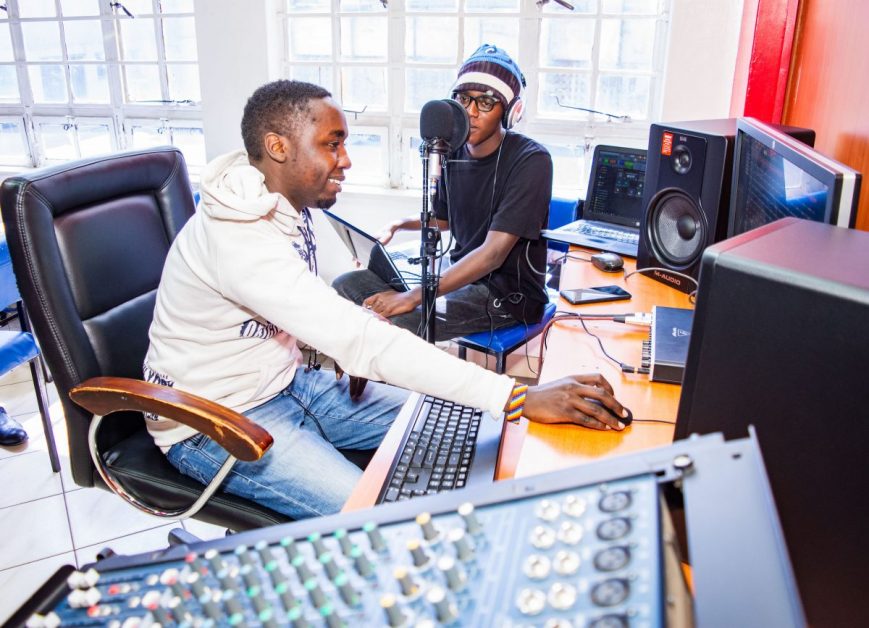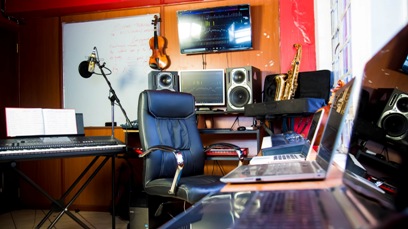
Music Production Fundamentals
Music Production Fundamentals

Music Production Definition
Music production is the process of creating, developing, and refining recorded music. This is the whole process of making a song, from writing it to recording it, sound designing it, mixing it, and mastering it. It is a complex and varied process and can take many different forms. Often, it involves a wide range of creative disciplines and can involve a range of skills and abilities.
Modern music production uses digital tools, no matter what workflow you use. The goal of every workflow is to help producers and engineers achieve the best possible results using the most up-to-date technology to create and edit music.
Thanks to today’s technology, music production is more accessible than ever before. For the lowest price, any musician can set up a home studio and start producing music. With just a laptop, a microphone, and a few plugins, anyone can start making their own music.
What a Music Producer does
A music producer can have multiple roles, depending on the genre and workflow. Like a film director, a music producer controls a recording’s direction. They create a vision, advise the musicians, and realize it.
Pillars Of Music Production
-
Music Production Equipment and Software.
To produce music, you’ll need a few main pieces of equipment. Music production setups vary. You don’t need expensive gear to start as a producer. It only requires computers, DAWs, and sound equipment.
-
DAW (Digital Audio Work Station)
The DAW is the digital home for your music production. It is more than just a tape machine in a traditional recording studio. Your DAW is the perfect environment for every step of your music production workflow.
-
Creating A Song
Some songwriters write songs, and some produce. It’s not always clear when someone stops being an artist and starts being a producer. Knowing the basics of songwriting and composition is important for modern producers.
-
Sound Design
Sound design is making sound tones and textures. This can mean finding samples, designing synthesizer patches, or experimenting with effects chains. Any method you use to make a unique sound is sound design.
-
Digital Sound Tools
You get a set of built-in plugins with your DAW, but there are tones of plugins you can download for free from the internet. Making your own plugins is part of developing your style as a producer. You can use plugins to add effects to your tracks, change the sound of a section of a track, or create a whole new sound all your own.
-
Mixing Music in Music Production
Mixing music is taking tracks and blending them to create a balanced sound. It makes your raw tracks into a coherent whole that’s pleasing to hear. Additionally, making it easy to understand.
-
Music Mastering
This is the end of your music production process. It’s the phase where your mix gets the final polish and balance for listeners. Mastering is the process of adjusting the sound of a recording (or the whole mix) to best suit the intended playback system or environment.
You can learn how to make music more easily than ever. Thanks to the ever-growing availability of resources. That is to say, it’s never been a better time to learn how to produce music. Use the resources available to start your journey today and you’ll be making music in no time.

0 comments
Write a comment